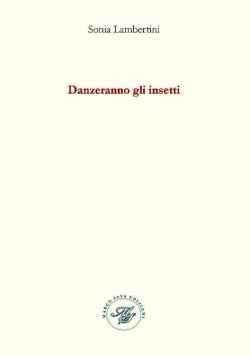Editorial
by Francesca Del Moro
Encouraged to deal with the ancient art of alchemy, the poets selected for this issue have chosen to explore it in its dual—material and spiritual—nature. Cristina Bove depicts a series of intense images to articulate the three steps in alchemy. Giusi Montali focuses on nigredo interpreting it—from the perspective of her peculiar poetics about the body—as an exterior and interior decay caused by abandonment, which is the prelude of a rebirth. In a poem permeated by a mythical and sacred afflatus, Claudia Zironi questions the alchemic arts that make the gold of her beloved one shine, elevating him to the stature of an idol worshipped by the crowds. In her metamorphic lines Antonella Troisi resorts to alchemical expertise in order to metaphorically cross Hell and rise again from the ashes, unhurt, in the never-ending cycle of existence. The arts learnt by Veronica Liga allow her to turn her own tears into a source of mutation and a possible rebirth restoring the peculiar function of their components—salt and water. Angelo Pini finally evokes a fraudulent chemistry to break free from the abandonment he has experienced through fascinating and hallucinatory lines that begin with a virulent infernal vision.
ALCHEMY OF ABANDONMENTS
by Angelo Pini
hairless thoraxes I expel them in the exhaust gases
I agree to the vision
in some low part
distances of fraudulent chemistries happen
this is the turn of the pardoned hands
to resew distances
I draw on abandonments
where as an experienced habitué
of a raffle of tomorrow
I soothe the midnight breath
I wake it up after a cloudy
dream thrown away in the street
ALCHEMY
by Antonella Troisi
As a salamander
passing through the flames
unhurt
I have crossed my hell
reviving
with my conscience expanded
from the ashes
eternal return
between us
a snake
biting its tail
sun/moon
gold/silver
in syzygy
alchemy
neural
physics
to sublimate
to fix
I asked you about gold, you answered about stars
by Claudia Zironi
I asked you about gold, you answered about stars.
if this is a fault may the infinite surrender
to heavens. how many millions
books you have leafed through - the question -
to learn to be loved
by the crowds
like an Aztec god
in black
begotten, how much pain you needed
to reveal an alchemical secret.
I am bloodless, I feel
the weight of your gold that does not flow, it only glows.
lying, I stay open
a kiss, on your hand, does not tremble.
(from Fantasmi, spettri, schermi, avatar e altri sogni, Marco Saya ed. 2016)
TEARS
by Veronica Liga
I take these tears
that flowing break the dams
of sleep, of commitments,
of the curiosity to see the news,
of pride, of decency,
of resignation’s apparent calm
I pick them up and divide
water from salt:
The water to irrigate what is thirsty
The salt to flavour what is tasteless.
Sublimation
by Cristina Bove
Embers igniting
_the lion roars in Rubedo_
its mane sets the North on fire
melts the metal
_the crow has nested in Nigredo_
the Œuvre au noir extinguishes every colour
in the athanor of senses
_the mysterious wedding in Albedo_
mercury and salt liquefying
the bride’s wedding ring is pure gold
_in the alchemical fusion_
the bridegroom’s hair’s turned silver
the mystique of senses
in the volatile essence of bodies
will transmute the stone into Light
_it will make us Immortal_
I finally come back home
by Giusi Montali
I finally come back home, I do without
fire, I take the last layer off
I walk in the darkness and draw
the diagonal lines: you who rise, you
who are already dead, you who still exist
because of my stubbornness
the state of nigredo is obtained by
exhausting phlogosis: I
melt, decompose, happen
to my ardour, but first I dawn
throw one last signal, become
a black stone, make man
and woman revive, unite them
on the roundness of my head
leave the reign, abdicate the reign
leave it to the tiny infant
Danzeranno gli insetti
by Sonia Lambertini
Memento of dissolvement with their swift appearing and disappearing, ephemeral and minimal creatures that we wipe out in a flash because of wish or distraction, insects take their revenge dancing around human carcasses when the body meets its expiry date. They feast on our remains, they stock up with leftovers and they inflict the infernal suffering on us depriving us of our sleep with their happy buzz. We will all end up on this table: even “humans / with their air of importance, / the sparkle in the eye / and in the aligned teeth, extra-white, / with a fully-equipped briefcase”. It is known that death is a “level”, as Totò has taught us, and that autodestruction starts the day we are born. The cuckoo clock above the head chants the days away, relentless and annoying, the subtraction of time is a minus sign that falls on our shoulders like a guillotine. Meanwhile, god slips away from our eyes, thinking about something else while he walks beside us, as busy as he is supplying the barbecue with fine and fresh pieces of meat. We are playing “a damned game” but dying doesn’t mean losing it. “Staring at death will save me” a crucial verse runs. And the stare comes back as a sign of courage in front of the black thoughts which have become prayer beads. This can be identified as the ultimate goal of the book: learning and teaching to stare at death. Because “the arrow, seen beforehand, slacks his flight”, as we can read in the canto XVII of Dante’s Paradise. Because, staring it in the eyes, little by little we can see death like a familiar presence, and mitigate the fear for and the terribility of losing our loved ones, as well as our provisional nature. “I have forgotten all the times / that I chanted its name” Sonia writes, and it is by chanting its name again and again that she finally manages to control the anguish and the discouragement that still emerge in her verses, with the invisible company of Baudelaire and of the Scapigliati as masters of macabre irony, of Samuel Beckett with his mocking and absent god, and with the visible presence of Thomas Bernhard and Ingeborg Bachmann, quoted in the epigraphs. There are professions and situations that force people to deal with death every day and you can presume that, in order to resist, you need to harden your heart. But these firm and solid verses, where each word has great significance and breath (and where we can also find explicit statements for a minimal poetry: “by subtraction, I repeat myself”; “a few words / short, I prefer them”), don’t sound hard: they rather indulge “the damned vice of caring”, they encourage us to “take the risk / of staying and speaking”, in other words to welcome what life offers us every moment and bear witness of it with our words.

